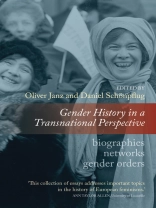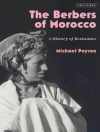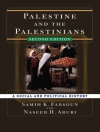Recent debates have used the concept of “transnational history” to broaden research on historical subjects that transcend national boundaries and encourage a shift away from official inter-state interactions to institutions, groups, and actors that have been obscured. This approach proves particularly fruitful for the dynamic field of global gender and women’s history. By looking at the restless lives and work of women’s activists in informal border-crossings, ephemeral NGOs, the lower management of established international organizations, and other global networks, this volume reflects the potential of a new perspective that allows for a more adequate analysis of transnational activities. By pointing out cultural hierarchies, the vicissitudes of translation and re-interpretation, and the ambiguity of intercultural exchange, this volume demonstrates the critical potential of transnational history. It allows us to see the limits of universalist and cosmopolitan claims so dear to many historical actors and historians.
Daftar Isi
Introduction
Oliver Janz and Daniel Schönpflug
Chapter 1. Understanding international feminisms as ‘transnational’ – an anachronism? May Wright Sewall and the creation of the International Council of Women, 1889 to 1904
Karen Offen
Chapter 2. A forgotten instance of women’s international organizing. The transnational feminist networks of the Women’s Progressive Society (1890) and the International Women’s Union (1893–1898)
Julie Carlier
Chapter 3. The national councils of women in France, Italy and Portugal. Comparisons and entanglements 1888-1939
Anne Cova
Chapter 4. A struggle over gender, class and the vote: unequal international interactions and the formation of the ‘female International’ of socialist women (1905-1907)
Susan Zimmermann
Chapter 5. How did women use the vote? Women and transnational politics in the twentieth century
Pat Thane
Chapter 6. A transnational career? The republican and utopian politics of Frances Wright (1795–1852)
Jane Rendall
Chapter 7. What is a transnational life? Some thoughts about Marguerite Thibert’s career and life (1886–1982)
Françoise Thébaud
Chapter 8. Between nationalism and cosmopolitism: female opera singers in Britain and Germany in the first half of the nineteenth century
Gunilla Budde
Chapter 9. Gender, class, race and sexuality: A transnational approach to legislation on venereal diseases, 1880s–1940s
Ida Blom
Chapter 10. Transgressing the colour line. Policing colonial ‘miscegenation’
Birthe Kundrus
Chapter 11. Sex drives, bride prices and divorces: Legal policy concerning gender relations in German Cameroon 1884–1916
Ulrike Schaper
Index
Tentang Penulis
Oliver Janz is Professor of Contemporary History at Freie Universität Berlin and has been Visiting Professor in Berne, Trento and Rome. He is editor-in-chief of 1914-1918-online. International Encyclopedia of the First World War. His recent publications include: Das symbolische Kapital der Trauer. Nation, Religion und Familie im italienischen Gefallenenkult des Ersten Weltkriegs (2009), Dolce Vita? Das Bild der italienischen Migranten in Deutschland (2011) and 14 – Der Große Krieg (2013).












